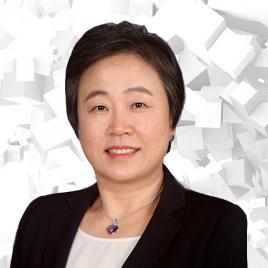Hervé Bourlard is the first Swiss researcher to receive the IEEE James L. Flanagan medal in recognition for his numerous contributions to the field of signal processing, among other in voice recognition using statistical models and artificial neural networks. He is the author/co-author of over 330 reviewed papers (including one IEEE best paper award) and book chapters, three books, and five edited books.
Globally recognized for its AI research, the Idiap Research Institute celebrates its 30th anniversary this year. What different tech applications and innovations has Idiap brought to the world?
Never following the buzz and the media hype, but driven by long-term research and development visions, responding to real societal needs, Idiap's success in the field of Artificial Intelligence is the result of 30 years hard and focused work in key and complementary areas such as signal processing, applied mathematics, statistical modeling, and machine learning.
Focusing of important human-to-human and human-to-computer interaction problems, hence also understanding social science aspects related to this communication, we have significantly contributed to the recent advancement of several fields, including speech and audio processing (including multi-lingual speech recognition), natural language understanding, biometrics, computer vision, robotics, and multimodal interaction and social signal processing.
While being strongly research oriented, we are also building upon a strong development team, resulting in important industrial developments, long-lasting AI platforms, reproducible research protocols, and software libraries. We recall here that Idiap was at the origin of PyTorch, now used worldwide as one of the key AI libraries.
There is also a short video on Idiap or at Youtube summarizing some other key contributions of our institute.
You have been awarded the 2022 IEEE James L. Flanagan Speech and Audio Processing Award for contributions to neural networks for statistical speech recognition. What are the most important recent trends in AI and where do you see growth potential for AI applications?
This award dates back to work in the late 1980s, early 1990s, with my colleague and now friend Nelson Morgan at the University of Berkeley, CA, where we developed very important relationships between neural networks and advanced statistical approaches. This has allowed the AI community a better understanding of artificial neural networks, clearly paving the way for all the work of modern AI, including in speech recognition, computer vision, etc., all building upon this pioneering work. In fact, most of today's AI developments are based on these theories, just making the most of the huge datasets and computational capabilities that weren't available 30 years ago!
What are the most interesting collaboration projects of the Idiap Research Institute with Swiss and international corporations?
Idiap really has a lot of collaborative projects at the international level, ranging from numerous EU research projects (about fifteen currently underway) to several projects with the US Department of Defense (DARPA or IARPA), as well as specific projects with large international companies.
It is hard to choose a few items. But, as a symbolic example, thanks to large collaborative EU projects (AMI & AMIDA), Idiap has been among the precursors of "Smart Meeting Rooms" where computers are used to model, understand and moderate Human-Human Communication. This has led to multiple key advancements in multimodal interactions, new paradigms in AI (using computers to facilitate human interactions), as well as a (yet) unique multimodal dataset, like AMI, which obtained in 2015 the “Ten-Year Technical Impact Award” from the ACM International Conference on Multimodal Interaction, for work initially published in 2005.
In fact, most of our key contributions are resulting in international collaborations, so important for a small institute like Idiap, located in Valais, Switzerland!
Has IDIAP collaborated with Korean corporations or institutions? Are there any plans to collaborate with Korean counterparts in the future?
We are always open to international collaborations, in which we strongly believe, including with Korean companies and institutions. While the potential for collaboration could certainly be better exploited, we regularly host Korean students. Idiap has also be a regular partner in the Samsung Global Outreach Program (GRO). For instance, in a project entitled "Multi-Lingual and Cross-Lingual Adaptation for Automatic Speech Recognition”, and in collaboration with the Samsung Advanced Institute of Technology (SAIT), we extended the state of the art in modelling and adaptation methods for multi-lingual automatic speech recognition.
Switzerland’s success as a business location has a lot to do with strong R&D capabilities and activities – in universities, research institutes and corporates. How would you evaluate Switzerland’s current position as an AI hub compared to other countries?
Switzerland enjoys a solid reputation for research, development, and innovation around the world, we believe this reputation is well deserved. Always driven by excellence and pragmatism, we are also close to national and international industrial networks.
Given this reputation, its strong research in AI, as well as the strong presence of other certification bodies (e.g., ITU), Switzerland has a real opportunity to be recognized as an IA Hub. Endowed with a strong multicultural and multilingual culture, as well as the multidisciplinary research enabled by a small nationwide collaborative research network, Switzerland has the potential to contribute significantly to critical aspects of AI such as reproducible (certified) research, trustworthy AI and security systems, while also paying the deserved attention to important ethical and privacy issues.




